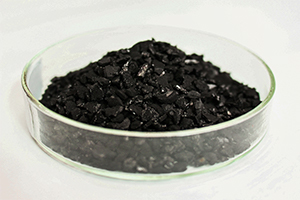Activated Carbon
Activated charcoal is a highly porous substance that purifies air, water, and gases. Its strong adsorption properties stem from a surface area of 800 to 1,200 square metres per gram, attributed to its small pores. This makes it cost-effective for treating gas volumes with low contaminant concentrations.
Enhance Odour and Moisture Control
Activated charcoal is an effective adsorbent for air, water, and gases and odour control. It is produced from materials with high carbon content, like coal, wood, and coconut shells.
Activated charcoal can be used in municipal drinking water treatment, food and beverage processing, odour removal, and industrial pollution control. It can also adsorb polyaromatic hydrocarbons in coconut and fish oils that are not removed by the earth. It is used in various industries, including food and manufacturing. It is available in granular, pellet, and powder forms.
Preserve Freshness with Desiccant Packs
Activated charcoal is also effective in removing soaps and pigments, especially chlorophyll. Combining activated charcoal desiccant packets with silica gel beads in desiccant packs enhances adsorption outcomes. This combination significantly improves the ability to control odour and moisture levels.
- Highly effective in cleansing air, water, and gases
- Boasts strong adsorption due to a large surface area
- Ideal for low-contaminant gas volumes
- Available as granules, pellets, and powders
- Applicable across diverse industries
- Crucial for municipal drinking water purification
- Successfully eliminates unwanted odours
- Plays a vital role in industrial pollution control
- Can adsorb polyaromatic hydrocarbons
- Paired with silica gel for improved odour and moisture management
- Particle size: Activated carbon is available in various particle sizes, ranging from powder to granular to extruded forms. The particle size is important because it can affect the rate of adsorption and the overall effectiveness of the material.
- Adsorption capacity: The adsorption capacity refers to the amount of impurities the activated carbon can remove from a given air or liquid. The adsorption capacity depends on the impurities type and the activated carbon’s specific surface area.
- Iodine number: The iodine number measures the adsorption capacity of activated carbon for certain organic compounds, such as chlorinated solvents and aromatic hydrocarbons.
- Ash content: The ash content refers to the amount of inorganic material in the activated carbon, such as minerals and metals. A low ash content is desirable for many applications.
- Moisture content: The moisture content is the amount of water in the activated carbon, which can affect the material’s performance. Low moisture content is desirable for many applications.
- pH: The pH of activated carbon can affect its adsorption capacity and reactivity. Activated carbon can be acidic, neutral, or alkaline, depending on the manufacturing process and the intended use.
- Bulk density: Bulk density refers to the weight of activated carbon per unit volume. This specification can affect the handling and transportation of the material.
Activated Carbon Product Brochure: Download


